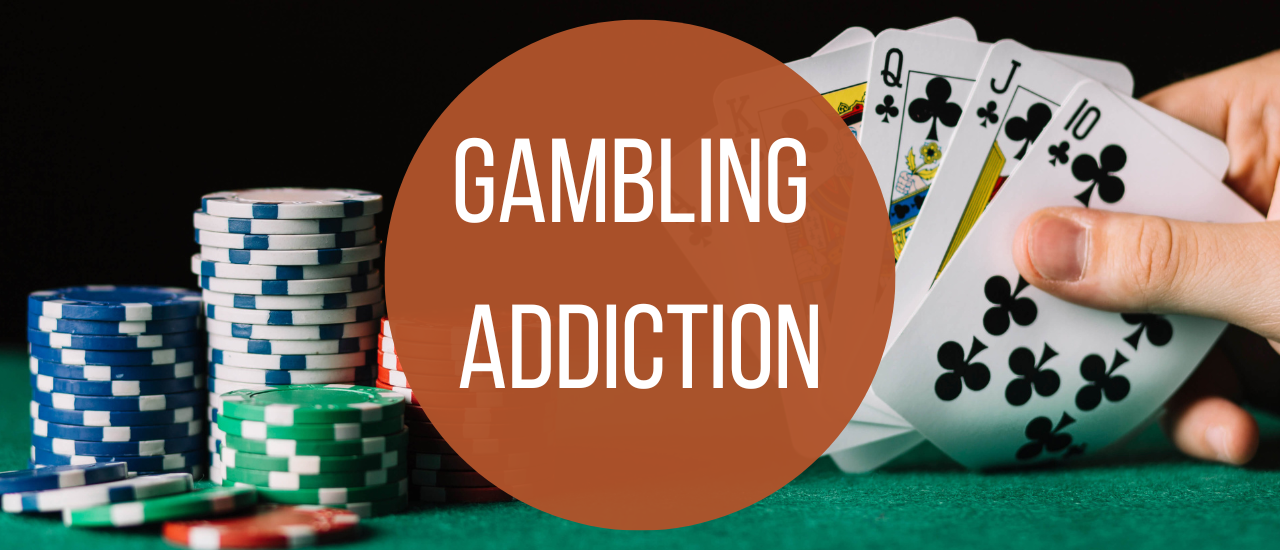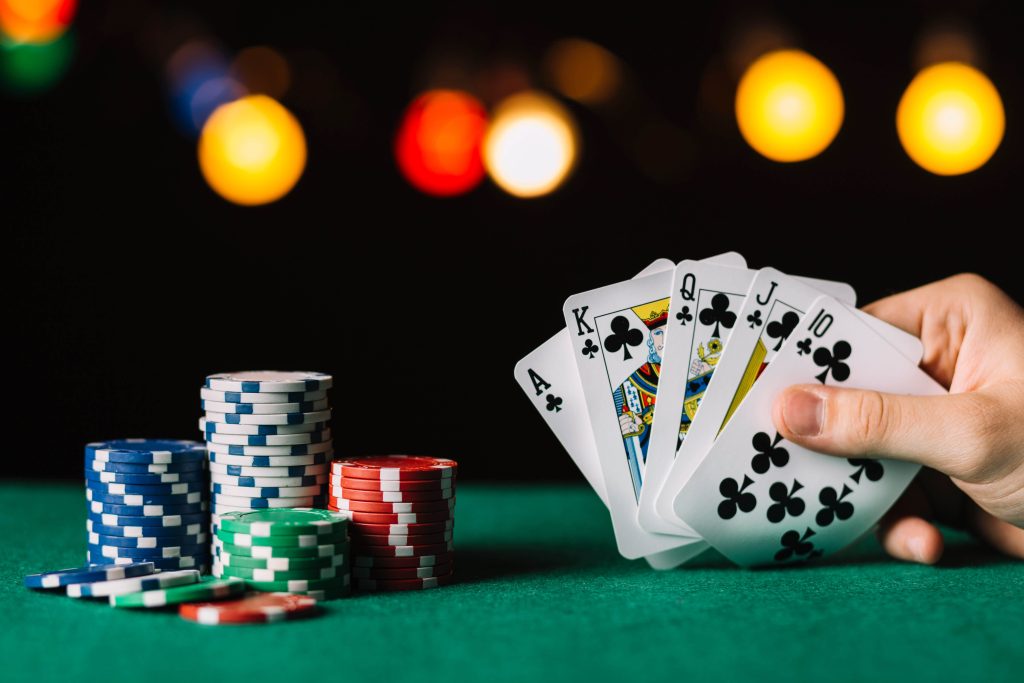


Gambling addiction can behave very similarly to addiction to drugs it is possible to activate the reward pathway in the brain, resulting in a feeling of fulfillment. When someone gambles, they place a financial wager on an unknown result. A wager on the result is required in order to win a prize. The term “compulsive gambling or gambling addiction” refers to a loss of control over gambling activity those results in serious issues with money, employment, or interpersonal relationships. Pathological gambling or problem gambling are some names for it. A gambling disorder makes it impossible for a person to restrain their gambling.
A person with a gambling condition will make an effort to hide his or her problematic conduct by saying that the funds were used for other purposes. A person who is dependent on gambling could struggle to make ends meet. It’s critical to understand that problem gamblers are not only con artists. They could be experiencing severe mental health issues or simply be experiencing financial depression.

Gambling addiction and compulsive gambling can develop as a result of this cycle of activity. It’s crucial to remember, though, that not everyone who gambles will get addicted to it. If there is a suspicion of gambling disorder, it is crucial that family and friends keep a close eye out for these symptoms of gambling disorder. Let’s talk about the important signs of gambling addiction.
According to research, those who have a compulsive gambling may eventually gamble more frequently and with larger sums of money.
Compulsive gambling can result from an uncontrolled craving for the exhilaration or excitement of winning. You may not even be aware of some of the potential risks that might result from compulsive gambling. Even though gambling addiction is not a drug or alcohol addiction, it can be just as harmful. An issue with impulse control in the brain is the root of gambling thoughts. There are numerous ways in which someone can become addicted to gambling.
Additionally, a significant contributor to compulsive gambling is mental illness. Gambling addiction is specifically linked to conditions including schizophrenia, antisocial personality disorder, and bipolar illness. These connections are thought to emerge from gambling during manic episodes or as a reaction to low levels of dopamine and serotonin. Gambling can elicit euphoria that is comparable to that produced by other drugs of abuse, thus people with mental illnesses frequently use it to mask the symptoms of their illnesses.
They frequently spend money from savings, pay bills, take care of their families, and even borrow money from others to spend money they don’t have. Another factor that contributes to gambling addiction is financial issues. A person will typically seek a quick fix when they are in a tight financial situation. Some gamblers who have a problem will turn to gambling to help them, only to find that they have only dug themselves a deeper hole. They genuinely believe they have a good chance of winning large with only a tiny investment.
Anxiety disorder and compulsive gambling are two psychological disorders that are quite comparable. The person will experience a variety of feelings, impulses, and actions when the central nervous system is activated by the chemical in their brain. These actions may drive someone to engage in one of the elements of gambling addiction.
Any sort of addiction is greatly influenced by the environment. A person who is under a lot of stress at home, at work, or in school might gamble to pass the time. A tight tie is produced by the rush of exhilaration and emotional attachment that must be treated to release. One’s likelihood of acquiring this issue rises if there is a family history of compulsive gambling.
The majority of those who gamble do so because their buddies are also gamblers, however many bet on their own. Another significant contributor to gambling addiction is peer pressure. People frequently engage in behaviors that are similar to those of their peers and are susceptible to negative influence. Additionally, when a gambler starts to have success at a casino, they could enjoy the attention they receive. The attention they receive from other people may promote their gambling thoughts and lead them to take greater chances and place riskier bets.
Although the specific root of a gambling addiction is unknown, there are some risk factors of gambling disorder that are frequently present in those who show indicators. The chance of developing a gambling addiction may be increased by a number of factors, including biological, genetic, and environmental ones. Competitiveness, impulsivity, and restlessness are some personality traits that may enhance the chance of developing a gambling addiction. Additionally, people are more prone to engage in such conduct if they have a family member who struggles with gambling.
A parent with a gambling issue increases the likelihood of the child developing one as well. To better understand how genetics and gambling disorders are related, Yale researchers are conducting study. The development of a gambling addiction is thought to be influenced equally by genetic and environmental variables.
Although men are more likely than women to develop gambling issues, the gap appears to have closed recently. Women typically favor less strategic kinds of gambling, such as bingo or slot machines, while males seem to be more driven to card games or sports betting.
Since many persons with gambling addictions also have personality disorders, treatment of gambling disorder for these individuals may be impeded. According to the researchers’ findings published in the Journal of Gambling Studies, people with gambling problem commonly share traits with people who have narcissistic, borderline, histrionic, and antisocial personality disorders. They frequently experience social isolation, troubled peer interactions, low self-esteem, and depressing emotions of pessimism.
Alcohol, tobacco, and other substance abusers, those with mental disorders like schizophrenia or antisocial personality disorder, and people with attention deficit hyperactivity disorder are frequently associated with gambling issues (ADHD).
People who battle with another mental health problem frequently develop compulsive addiction. Substance use disorders, personality disorders, as well as sadness and anxiety, might fall under this category.
Gamblers frequently have genetic or psychological predispositions that make them prone to excessive gambling, which can cause profound changes in the way the brain sends chemical impulses. These triggers can start a person on the path to addiction. Restoring the brain to normal means erasing weeks, months, or possibly even years of detrimental effects since it becomes conditioned to desire to activate its reward system more and more, to the point where its mental wiring is dramatically affected.
pathological Gambling and mental health issues may make each other worse. This implies that your mental health can influence whether you turn to gambling as a form of release or escape and that gambling can harm your mental health. Many people appear to have a hereditary predisposition to addiction. Alcohol, drugs, and gambling should be avoided if you have a family history of addiction.
The first step in treating of gambling addiction is for the person to admit they have a problem. One of the most difficult aspects of treating compulsive gambling can be getting the patient to acknowledge that they have a problem. Gamblers who use cognitive behavior therapy can examine their feelings and thoughts regarding gambling, their capacity for behavior control, and their efforts to alter their viewpoint. Therapists use methods to teach their patients coping mechanisms for dealing with intense emotions, triggers, and relapse prevention. The best therapy for a gambling disorder is this kind of treatment. Self-exclusion, which refers to preventing one from being tempted to gamble, is another advised strategy.